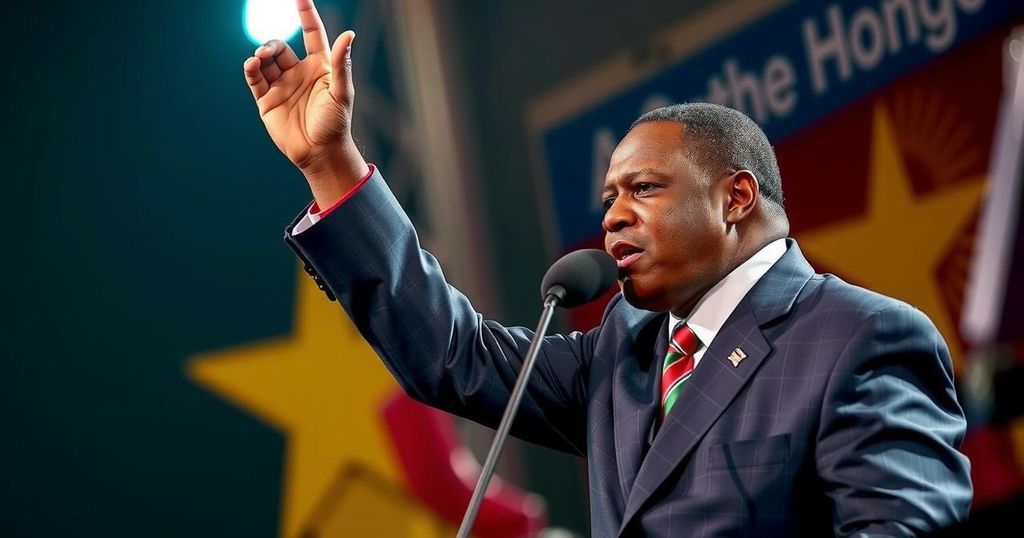Mozambique Ruling Party Declares Election Victory Amidst Violence and Allegations of Fraud

Mozambique’s ruling party candidate, Daniel Chapo, has won the presidential election with 70.7% of the vote, while opposition figures were assassinated prior to the ballot and allegations of electoral fraud have emerged. Venâncio Mondlane garnered 20.3% support, calling for protests against the results. Concerns over human rights violations and electoral integrity persist amid calls for governmental accountability.
The candidate representing Mozambique’s ruling party, Frelimo, has achieved a significant victory in the recent presidential election, securing 70.7% of the vote and thereby avoiding a runoff, according to the election commission. Meanwhile, the opposition candidate Venâncio Mondlane, who had energized the youth vote, finished second with 20.3% of the ballots cast. This electoral process, however, has been overshadowed by violence, notably the assassination of two opposition members, including leading lawyer Elvino Dias, ahead of the elections held on October 9. Accusations have also arisen regarding electoral fraud, with civil organizations claiming the ruling party manipulated the voter rolls by including approximately 900,000 ineligible voters from a total electorate of 17 million. Observers, both local and international, reported discrepancies during the vote count, highlighting issues such as ballot stuffing and unauthorized alterations to the reported results. The country’s historical context is critical, as Mozambique grapples with economic difficulties stemming from a previous scandal involving $2 billion in undisclosed loans, which has led to a significant withdrawal of international financial assistance. Mondlane, viewed as a voice of change among the youth, called for nonviolent protests on social media in response to the election outcome. His advocacy was supported by human rights organizations drawing attention to concerns regarding the government’s handling of dissent, particularly regarding the treatment of protesters and journalists. Zenaida Machado of Human Rights Watch emphasized the need for the authorities to uphold the right to peaceful assembly and investigate reports of violence against demonstrators. Given the past conduct of security forces, there remain significant concerns about their potential responses to civil unrest.
Mozambique, one of the poorest nations globally, has faced considerable challenges since the exposure of a $2 billion corruption scandal in 2016. This debacle not only devastated the economy but also prompted the International Monetary Fund along with various international funding agencies to retract their support, exacerbating poverty levels in the country. Frelimo has remained the dominant political force in Mozambique for nearly half a century, yet there are growing calls for change as younger populations increasingly express discontent with the status quo. The recent election cycle has been particularly alarming due to the violence inflicted on opposition figures, which raises serious questions about the integrity of the electoral process and the ruling party’s commitment to democracy.
In conclusion, the recent presidential election in Mozambique highlights severe allegations of electoral malpractice alongside unprecedented violence against opposition members. While Frelimo celebrates a decisive victory, the circumstances surrounding the elections raise significant concerns among observers and civil society about the legitimacy of the electoral process and the treatment of dissenting voices within the nation. As calls for peaceful protests gain traction, the authorities face increasing pressure to ensure the protection of human rights and to address the issues of accountability in the electoral system.
Original Source: www.theguardian.com






